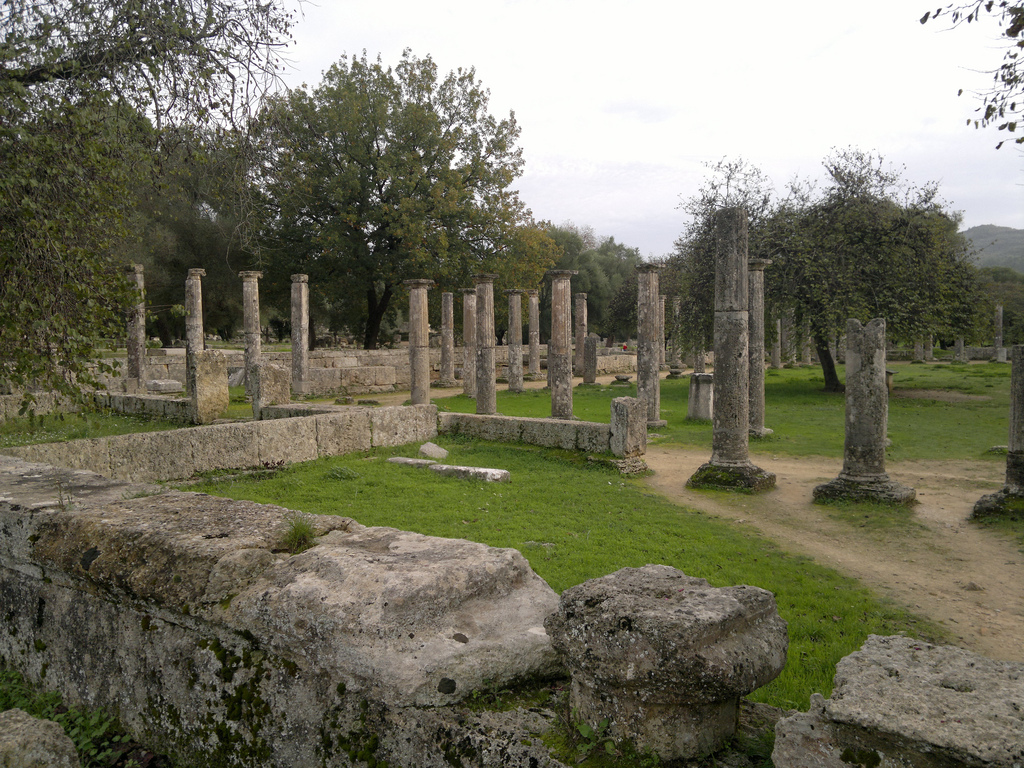In the western Peloponnese, in the beautiful valley of the river Alpheios, flourished the most glorified sanctuary of ancient Greece, which was dedicated to the father of the gods, Zeus. It spreads on the southwestern foothills of the verdant Kronios hill, between the Alpheios and Kladeos rivers, which join in this area. Despite its isolated location near the west coast of the Peloponnese, Olympia established itself in Panhellenic as the most important religious and sports center.
This is where the most important games of ancient Greece were born, the Olympic Games, held every four years in honor of Zeus, an institution with pan-Hellenic radiance and brilliance from ancient times to the present day. The beginning of the cult and the mythical contests that took place in Olympia is lost in the depths of the centuries. Local legends about the powerful king of the region, the famous Pelops, and the river god Alpheus, reveal the sanctuary’s strong ties to both East and West.
The oldest findings in the area of Olympia are located at the southern foot of the Kronios hill, where the first sanctuaries and prehistoric cults developed. A large number of sherds, dating to the Late Neolithic period (4th millennium BC), were found on the northern slope of the stadium.
Traces of habitation from all three periods of the Bronze Age have been identified in the wider area of Altea and the New Museum. In the Proto-Helladic II period (2800-2300 BC) a large mound was constructed, which was revealed in the lower layers of Pelopion, and in the Proto-Helladic III period (2150-2000 BC) the first arched buildings of the settlement were built. According to ancient tradition, in the 11th century BC. in the wider area of Olympia, the Aetolians settled, led by Oxylos, who founded the state of Elis.
Towards the end of the Mycenaean era, the oldest primitive sanctuary, dedicated to local and pan-Hellenic deities, was probably formed.

